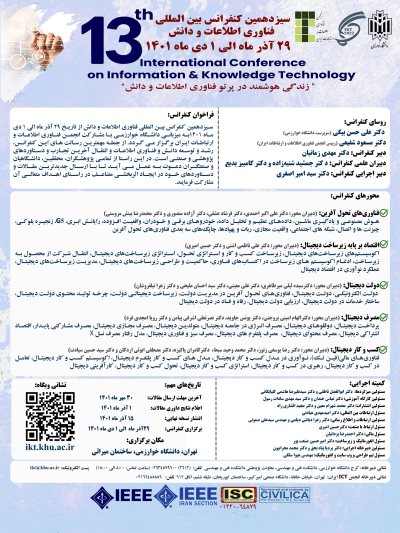0% Complete

نویسندگان :
کلمات کلیدی :
چکیده :
لیست مقالات بایگانی شده
Shaghayegh Mehdizadeh saraj - Seyyed Amir Asghari - Mohammadreza Binesh Marvasti
Aboozar Heydaribeni - Hamzeh Beyranvand - Sahar Eslami
Zahra Abolfazli - Hamid Reza Abutalebi
Farsad Zamani Boroujeni - Doryaneh Hossein Afshari - Fatemeh Mahmoodi
محمدمتین لیث صفار - عسل آغاز
محمد ناظمی جنابی - هادی اشعریون - مهدی پورقلی
سجاد قطعی - زهره عربی - محمد روحی
مهدی علیرضانژاد - عمار عبیس حسین المعموری
Melika Mosayyebi - Reza Azmi



